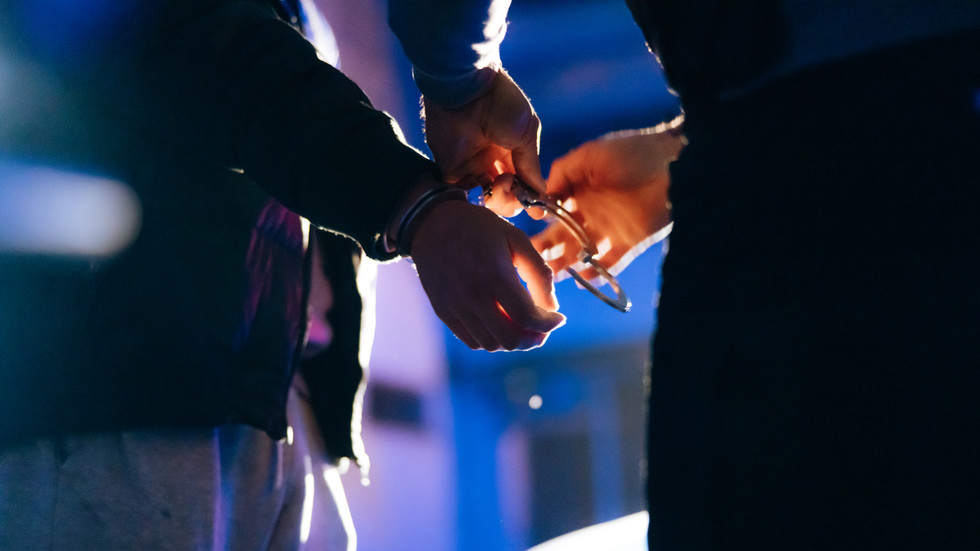KAMPALA, Apr 21 (IPS) – The mothers of LGBTQ+ individuals in Uganda have taken a stand against Bill passed by the Ugandan Parliament proposing the death penalty for aggravated homosexuality, life imprisonment for the “offense of homosexuality,” and up to 20 years in jail for promoting homosexuality.
This stance is considered rare for Uganda and Africa, where Human Rights Watch says 33 countries still criminalize homosexuality. And there is concern that because of the success of the Ugandan Bill, other African countries could be encouraged to intensify targeting the anti-LGBTQ+ community.
Mawethu Nkosana Nkolomba, the Crisis Response Fund Lead/LGBTI Advocacy Lead at CIVICUS, told IPS that the passing of the Bill in Uganda was not an isolated incident. “There is a threat of LGBTI civil society groups being targeted soon in Kenya, and because of what just happened in Uganda, there are fears of the LGBTI bill coming back in full force. Niger – has a similar bill being tabled.”
“So is Tanzania – the targeting of LGBTI and feminist groups are under target (anal testing), Ghana – has a similar bill as Uganda, Burundi – (is experiencing) a new wave of arrests of LGBTI groups, the situation of LGBTI groups in Tunisia and Algeria is worsening, in Egypt, police are using queer apps to target the LGBTI community – so definitely there is a trend,” Nkolomba says in an interview with IPS.
Activist Eric Ndaula says the issue is that homophobia is a pervasive mindset – with politicians, religious leaders, and even family taking a stance against it. “They tell us that homosexuality is wrong; it’s an abomination.”
When the Ugandan Parliament passed the Bill on March 21, 2023, without asking for anonymity, Jane Nasimbwa, Sylvia Nassuna, Janet Ndagire, Patricia Naava, Jackie Nabbosa Mpungu, Florence Matovu Kansanze, Josephine Amonyatta, and Shamim Nakamate openly identified themselves as mothers of LGBTQ+ individuals.
Their “Open Letter to President Museveni from Mothers of LGBTQ+ Individuals,” – republished by the Monitor, surprised many.
“As parents of LGBTQ+ individuals, we are not ‘promoters’ of any agenda; we are Ugandan mothers, who have had to overcome many of our own biases to fully understand, accept, and love our children,” reads the letter.
The women expressed fear that their children were likely to be targets of mob violence, which they noted was a direct consequence of living in a country whose legislators are “recklessly” legalizing homophobia and transphobia with the Anti-Homosexuality law.
“We, too, did not choose to be parents of LGBTQ+ children, but we have chosen to love our children for who they are. As parents, we all desire and work to ensure that our children are healthy, well-educated, successful, and fulfilled in both their professional and personal lives.”
The letter was shared on Twitter by Dr Catherine Kyobutungi, a feminist and The Executive Director of the African Population and Health Research Center, sparking an online debate.
They requested President Yoweri Museveni not to assent to the Anti-Homosexuality Bill, saying they could no longer stand on the sidelines and watch as their children continued to be bashed and threatened in such a dangerous and deliberate manner.
Will President Museveni Listen?
There are doubts about whether Museveni, who previously signed the Anti-Homosexuality Bill into law in 2014, will heed the mothers’ call – even though he has sent the Bill back to parliament for amendment.
In a press statement released on April 20, 2023, which quoted him as saying: “Be ready to sacrifice to fight homosexuals,” he also noted: “It is good that you rejected the pressure from the imperialists. Those imperialists have been messing up the world for 600 years, causing so much damage.”
The Bill is to be returned not because of a change in sentiment but because Attorney General Kiryowa Kiwanuka said the Bill in its current form criminalizes even those who voluntarily come out to having “practiced homosexuality” and need to be helped.
He proposed a provision for amnesty for this group.
Museveni has been quoted several times that those behind the criticism of the Bill were associated with Europeans – and he has expressed anti-homosexuality sentiments in several other addresses since then.
“There is some issue with these Europeans. They don’t listen; we have been telling them that this problem of homosexuality is not something that we should normalize and celebrate,” Museveni said. “I told them that there were some few homosexuals before Europeans came here … But now the Europeans want to turn the abnormal into normal and force it on others.”
After the Bill was enacted, Museveni addressed a meeting of members of Parliament from 22 African countries and the UK. He repeated that homosexuality was a deviation, adding that it was more dangerous than drugs.
In February 2014, President Museveni appointed a committee of scientists to determine whether there was a scientific or genetic basis for homosexuality and whether it could be learned and unlearned.
While the committee recommended a further study, it observed that homosexuality existed throughout history.
‘Blatant Violation of Rights’
Dr Zahara Nampewo, a lecturer at the Makerere University’s School of Law and Director of the Human Rights and Peace Centre (HURIPEC), speaking at a debate a day after the Bill was passed, said there were far-reaching implications of the law.
“We have raised our voices of concern over issues such as the blatant violation of rights such as the presumption of innocence, the right to a non-derogable right to a fair trial,” Nampewo says. “We have been calling for laws to protect children against child abuse; we have been calling for the marriage bill. Why now, in a period of a month, has (this) law been passed?”
The mover of the Bill, Asuman Basalirwa, told IPS that they had planned to table the Bill since August 2022, but it was only in late February that the Speaker granted them space on the order paper.
“The issue of recruitment, promotion, and financing of homosexuality. You don’t provoke a community like that. If those people were doing their things quietly, nobody would be bothered, but you see, you are going into our schools, you are attacking our children. And you want us to look on?”
Asked why a particular stance to criminalize LGBTQ+ persons, Basalirwa told IPS that the criminalization of homosexuality is not a new phenomenon. “It is the colonialists who first brought here a law on homosexuality section 145 of the penal code. This is intended to be a penal law. So you want a penal law that doesn’t criminalize it,” he asked.
Timing of Passing the Bill
Some critics have argued that the Bill was rushed by Speaker of Parliament Anita Among and her deputy Thomas Tayebwa because those behind it wanted it to be passed before an Inter-Parliamentary Conference on family values under the theme “Protecting African Culture and Family Values.”
The two-day conference was held on the shores of Lake Victoria from March 31 to April 1, 2023. It was attended by leaders of Family Watch International (FWI) officials. FWI is a US Christian organization described by civil rights activists as a “hate group, which opposes comprehensive sexuality education.” Delegates from FWI included Sharon Slater, who told the conference that: “We are on fire, and we must stop this culture of imperialism that is destroying our children.” Slater and her team, which included Henk Jan van Schothorst, the Executive Director at Christian Council International, and Gregg Scot, a US attorney, met Museveni and his wife, Janet Museveni, at State House Entebbe.
‘Victimless Offense’
But Dr Adrian Jjuuko, Executive Director at Human Rights Awareness and Promotion Forum – Uganda (HRAPF), disagrees with Basalirwa about the timing of the enactment of the Bill.
“This is a campaign that has been going on for years. And it is not just a Ugandan campaign. This is an international campaign,” said Jjuuko, whose organization provides legal aid to LGBTQI+ persons.
Jjuuko, whose organization has allegedly been listed by Uganda’s NGO Bureau among Civil Society groups likely to be closed, told IPS that the offenses suggested in the laws are victimless because the relationships were consensual. “If you have a victimless offense, why do you have to criminalize a victimless offense? Nobody is complaining; there’s no harm. Harm to who? To Hon Basalirwa?”
The Bill limits the offense of homosexuality to sexual acts between persons of the same sex. The offense is punishable by life imprisonment, up to ten years. It also provides for the offense of aggravated homosexuality.
“If you look at the provision on the promotion of homosexuality. It essentially bans what we do as lawyers. So as a lawyer, you cannot represent an LGBTQ+ person because that will be seen as a promotion of homosexuality,” Jjuuko says.
The law suggests several punishments, including the death penalty for being a repeat offender and life imprisonment.
“Repeat offender means if you are convicted of being gay twice, you die for that. Having consensual sex when you are HIV-positive, you die for that; if you have sex with a person of the advanced age of 75 years, you die for that regardless of whether it is consensual.”
Jjuuko observes, “If you wanted to fight pedophilia, sexual orientation is not what you go for. What you go for is the crime that you are interested in fighting.”
NGOs suspected of promoting homosexuality risk a fine of one billion shillings (over $264,000) or face twenty years in prison.
Restrictions, threats, and the vilification of sexual minorities in Uganda preceded the passing of the Anti-Homosexuality Bill. In August 2022, the civil society organization Sexual Minorities Uganda (SMUG) was banned by the Ugandan National Bureau (the NGO Bureau for Non-Governmental Organizations) because it was not registered. In 2012 the NGO Bureau rejected an application by SMUG to have it registered because the organization was “undesirable and un-registrable.”
Asuman Basalirwa, the mover of the Bill, and fellow Parliamentarians argued that the country needs the law to protect children from promoters of homosexuality. But Jjuuko, in an interview with IPS, said that it was a misplaced sentiment.
“If you talk about children, the biggest threat to our children is not homosexuality. The biggest threat to children is heterosexuality. Because if you look at the annual police crimes report, over ten thousand cases of defilement of girls by men. And there were only 83 cases of unnatural carnal knowledge (as the offense is described in the bill) against the order of nature.”
The Bill is Retrogressive
Many have observed that the Bill is retrogressive and will worsen the HIV situation in Uganda as it would deny LGBTIQ+ persons, who are key populations, access to HIV services.
The Bill came after PEPFER Uganda, in collaboration with the Ministry of Health in Uganda, the Uganda AIDS Commission, conducted a legal and environmental assessment of HIV/AIDS and key populations. The evaluation had recommendations to ensure an enabling environment to move the course toward epidemic control.
PEPFAR Uganda Country Coordinator, Mary Borgman, told IPS, “We need to ensure that the human rights of all key populations are respected regardless of who we are. And this is our primary objective to ensure that we provide services to all people. That is stigma and discrimination-free.”
While South Africa’s Constitution is hailed for being the first in the world to prohibit unfair discrimination based on sexual orientation, LGBTQ+ people still experience violence. Human Rights Watch noted that in 2021 at least 24 people were murdered due to their sexual orientation.
More concerning is the decision of an independent expert body within the African Union (AU), the African Commission of Human and Peoples’ Rights, to reject the three NGOs’ observer status to three NGOs.
Frans Viljoen, Director and Professor of International Human Rights Law, Centre for Human Rights, University of Pretoria, argues in the Conversation that the rejection of Alternative Côte d’Ivoire, Human Rights First Rwanda and Synergía “casts a shadow over the commission’s commitment to advancing the rights of all Africans. It also seriously erodes its independence from AU states … The denial of observer status means the NGOs will not have a voice before the African Commission. They will not be able to draw its attention to the human rights violations of LGBTQ+ people in Africa.”
IPS UN Bureau Report
Follow @IPSNewsUNBureau
Follow IPS News UN Bureau on Instagram
© Inter Press Service (2023) — All Rights ReservedOriginal source: Inter Press Service
















